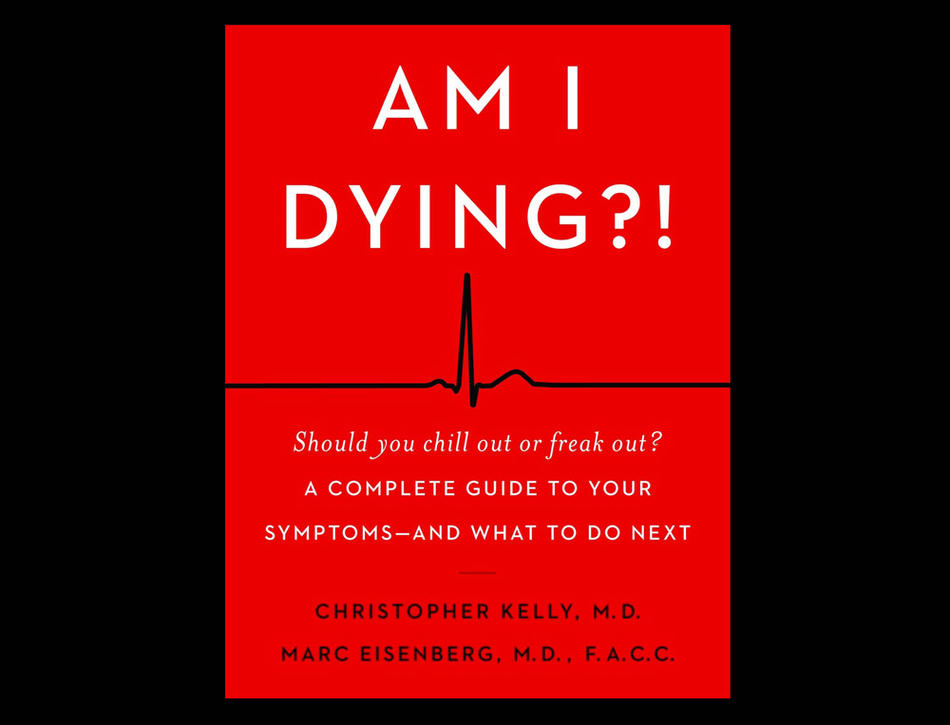So you’ve got a bellyache that won’t go away. Is it food poisoning? Acid reflux? Are you lactose intolerant? Or is it something more serious? Of course you could consult Dr. Google (type “stomach pain” into the search bar and reveal a mere 328 million results), but if you want expert advice without leaving your living room then this new book from two Columbia cardiologists is probably the better prescription.
Christopher Kelly ’06CC, ’11PS, ’18PH a senior clinical fellow at Columbia University Irving Medical Center, and his colleague Marc Eisenberg ’91CC, ’95PS, an associate professor of medicine, combine credentials with comedy to deliver a medical guidebook that is as entertaining as it is informative. When it comes to bellyaches, they’ll tell you when you should relax and “take a chill pill” and when it’s time to get to the ER. In other words: “Is this just a bad case of food poisoning that needs a few more hours to work itself out? Or are you and your appendix enjoying your final evening together?”
The book, which covers about forty different symptoms, answers questions including, “Does that cut need stitches?,” “When should you worry about chest pain?,” and “What to do if you have ‘more gas than ExxonMobil.’” A chapter on back pain opens, “If you’re a human not currently serving in Congress, you have a spine. And if you have a spine, you are almost certainly familiar with back pain.” On the subject of hair loss, the authors’ musings include, “Here’s one more reason to use protection: sexually transmitted infections can cause hair loss. Maybe its nature’s way of decreasing your sex appeal until your business is back in order.”
The guide is free of medical jargon. In fact, the doctors go out of their way to make information highly accessible: “The average adult body contains about five liters of blood, enough to fill nearly a dozen Snapple bottles.” Bedbugs, in case you were wondering, “are about the size of Lincoln’s face on a penny.”
In 2019, publishing a symptom finder and medical guidebook may seem anachronistic, but Kelly and Eisenberg have reinvented the format, providing an important resource not only for health nuts, or hypochondriacs, but for everyone with a pulse. That pulse, incidentally “should be between 60 and 100 beats per minute … though an extra or skipped beat every now and then is okay.”



